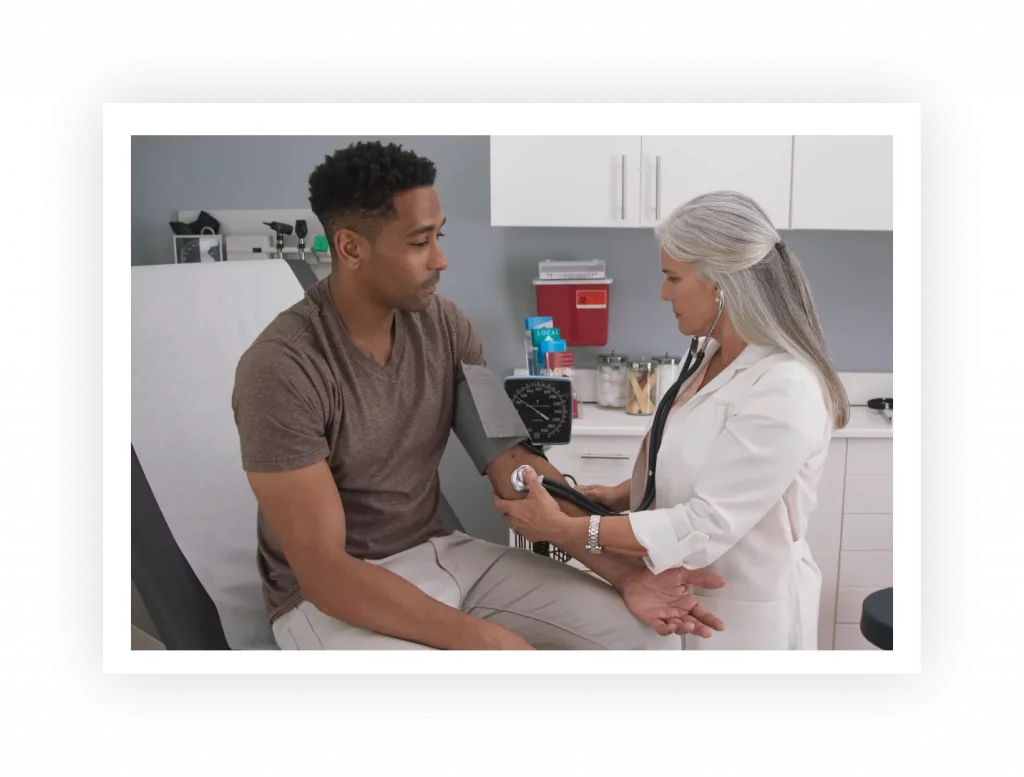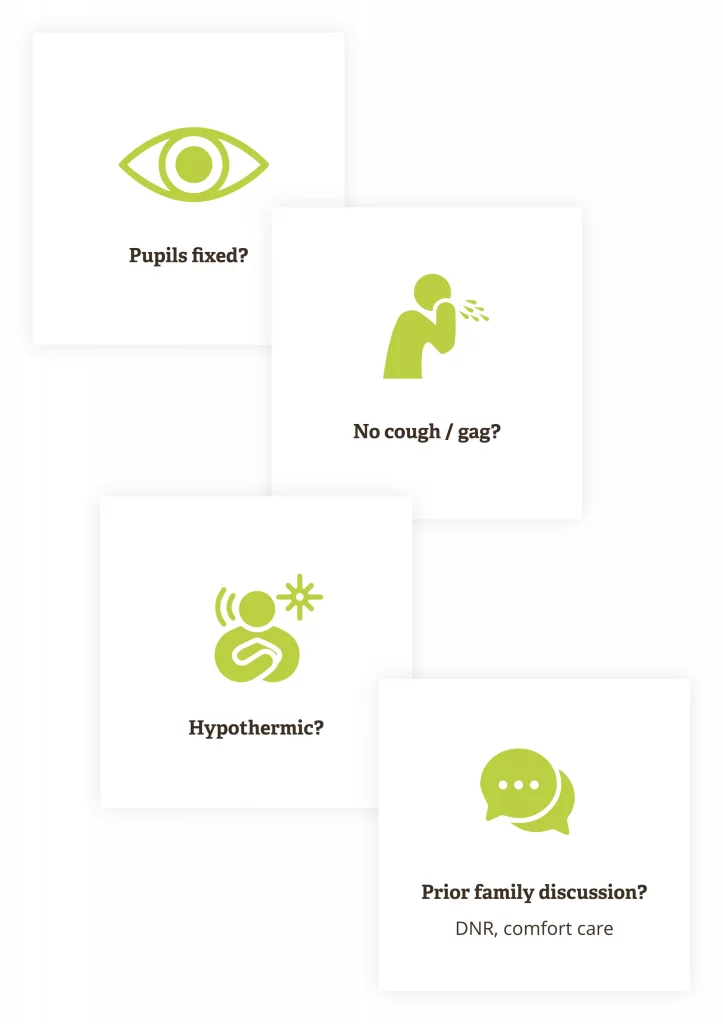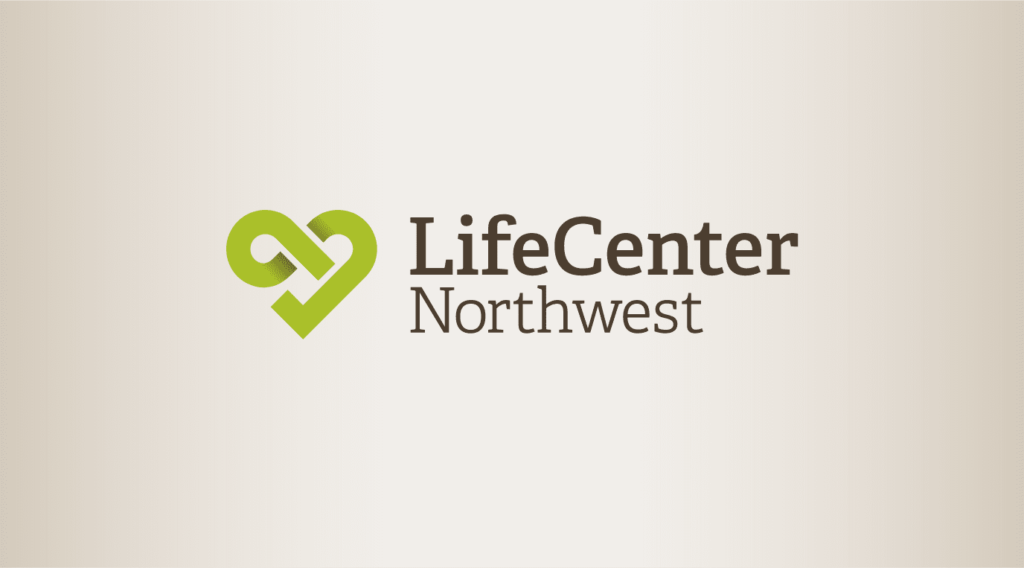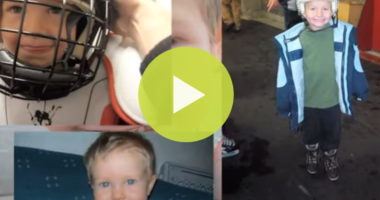
Physicians have a significant and direct influence on donation outcomes. You set the clinical management strategy, you lead care discussions with the patient’s family and you empower the members of the care team.
Shared goals
We share the same goals: we want to save lives and help families find comfort and meaning in a time of loss. We hope the resources below will help answer your questions and provide guidance on how best to work with our team and preserve your patient’s donation.
Questions? Contact our Hospital Development team.
Four Ways Doctors Can Promote Positive Donation Outcomes
- Keep the option of donation viable. Support the patient to maintain stability and organ viability, per CMS regulation (482.45 Conditions of Participation). See below for more on preserving your patient’s opportunity to donate.
- Make timely referrals according to the clinical triggers
- Ensure that the declaration of brain death is always performed in compliance with your hospital’s brain death policy.
- Collaborate with our team regarding the donation conversation. Communicate proactively with our donation coordinator regarding the family conference plan, DNR, and brain death testing. Close collaboration can lead to more positive conversations with families.
Preserving Your Patient’s Opportunity To Donate
Organ donation can give hope to families and provide assurance that a patient’s wishes were honored.
Donation also gives you and your team the opportunity to save some of the 18 people who die every day waiting for a transplant. Without you, that opportunity can easily be lost. Saving a life through donation isn’t possible without an invested hospital care team.
Keep three things in mind to preserve your patient’s opportunity to donate:
- Remember that what is good for the patient is good for the donor. Doing everything you can to help your patient will also help preserve their opportunity to donate.
- Remind care teams about the rules of 100s: systolic BP-100, urine output-100, PaO2-100.
- Don’t make assumptions about who can be a donor. Many situations that might have ruled out donation in the past no longer apply. Let us help determine donor suitability.
Communicating With Families Clearly and Compassionately
Delivering a grave prognosis to a family is an extremely difficult task for anyone, including physicians. You are a professional devoted to saving lives and giving this heartbreaking news can be overwhelming. We want you to know that we’re here to provide our support and experience in these situations — to help you treat your patient and their family with respect and compassion.
Here are four things to keep in mind that have been helpful to other doctors in these situations:
- Don’t discuss donation before or during the delivery of a grave prognosis. Because delivering a grave prognosis is so difficult, it can be natural to want to say something positive as well, such as the potential of helping others through donation. However, this often isn’t the best time to begin this conversation, since families naturally hold onto any evidence of hope at this very difficult moment. For example, a family that is told “there is not much hope” hears “there is still some hope.” If all interventions have been tried and have not worked, and there is nothing else that can be done, the family needs time to understand that.
- Take a timeout. The family must have time and space to absorb this tragic news before they receive additional end-of-life information. If donation is mentioned to a family prior to this “close-ended” news, they might conclude that the care team has quit trying — that they are more concerned about recovering organs and tissues. The family must have complete confidence that all medical interventions have been attempted to extend the patient’s life. Anything less plants seeds of doubt and mistrust.
- Create a plan with LifeCenter Northwest. We know that when families understand the good that can come from donation, they rarely say no. But donation information must be delivered in a respectful, time-sensitive manner—and with a unified approach and support from the care team and LifeCenter Northwest. We all owe that to the grieving family and to the thousands of people currently waiting for an organ, eye, or tissue transplant. That’s why it’s so important to call LifeCenter Northwest (888-543-3287) early, before beginning the donation conversation. Together, we can work to help your patient’s family find comfort in a difficult time.
- Communicate with respect and clarity. When the time does come to discuss donation, many physicians have told us that it’s sometimes helpful to keep it simple. Below are some basic tips that have helped other physicians in these situations: Recognize the sadness of the situation when telling a family their loved one is dead or dying:
- “I am very sorry to tell you this.”
- “I wish I could tell you something different.”
- “This is a horrible situation.” Let the family know that it’s okay to feel like the news is unexpected or shocking:
- “I imagine when you woke up this morning you didn’t expect to be here today.”
- “This can be very overwhelming.” Realize that a family in shock may not understand brain death or the need for comfort care, regardless of their level of education:
- “It can be hard to understand because she looks like she is sleeping, but her brain has lost all function.”
- “The time of her final brain death exam is her legal time of death.”
- “He is not in a coma.”
- “Sometimes even if it makes sense in our head it is hard to understand or believe in our heart.” Make sure the family knows they have permission to slow down:
- “This is a lot to absorb.”
- “Talk to your friends and family about this.”
- “We have time.”
- “Take some time and get a cup of coffee.”
- “There are more things to talk about… why don’t you take a break and we can reconvene later.” Recognize that if donation comes up too soon and a family reacts negatively, they may be saying “no” to the death and not to donation — so it’s okay to leave the conversation open-ended:
- “The decision to donate is a very important one; someone will be in to talk to you in more depth about it soon.”
- “Now may not be the right time to decide whether or not donation is right for her, why don’t you take some time to be with your family and sit with her. Someone will check in with you in about an hour.” Click here to watch Marcel Pincince, BA, STB, Manager, Donor Family and Advocate Services, Donor Network of Arizona discuss Hot and Cold Emotional States as They Pertain to Patient and Family Care and Communication and Decision Making at the UNOS Region 6 Forum in Seattle.
Donor Designation and the Law
Families are usually relieved to find out that their loved one has already declared their wishes with regards to donation, and that the decision has already been made. Families often feel an ethical duty to honor the expressed wishes of their loved one — since giving the gift of life to others, whatever their values or motive, may have been very important to the donor.
In some cases, however, families may question their loved one’s designation and at that point, state laws must be followed so that neither LifeCenter Northwest nor your hospital can be held legally responsible for not honoring the patient’s designated wishes.
Below are some of the relevant regulations, but contact our Hospital Development team if you want more information on the legal issues surrounding donation. In general, we have found that in many cases when families question their loved one’s wishes, they just needed better timing or more information. For example:
- Organ and tissue donation was raised too early with the family. Giving the family time will usually help them understand.
- Someone has set an expectation with the family that authorizing donation is a decision they need to make. Avoid language that indicates they have a decision to make.
- Families may have misconceptions about donation. Be thorough and respectful in addressing the family’s concerns.
- Family is surprised that their loved one didn’t tell them. Help the family understand that it is not unusual for individuals to not discuss death with their family.
Donor designation is a documented, legally binding commitment by an individual to make an anatomical gift — and just like a will or testament, it can only be revoked by that individual. Below you can find links to the Uniform Anatomical Gift Act (UAGA) for all the states in our region:
Click here to watch Alexandra Glazier, President & CEO, New England Donor Services, discuss Why Gift Law Matters: The Law and Ethics of Donor Designation at the UNOS Region 6 Forum in Seattle.

Clinical Triggers for Organ Donation
Call LifeCenter Northwest at 888-543-3287 before any family discussion of DNR, comfort care, or ventilator withdrawal, if:
- Your patient is ventilated
- Your patient has lost three or more brainstem reflexes
- There is anticipated discussion surrounding end-of-life
The Donation Conversation
Wait to discuss donation with the family.
We will determine if the patient has documented their decision regarding being an organ, eye, and tissue donor, and we will determine donor suitability. We will also contact the patient’s attending physician—to gain more information, and collaborate on a plan if donation is an option.


Find your hospital’s dedicated donation representative
Every hospital across Alaska, Montana, North Idaho, and Washington has a dedicated Hospital Development representative from LifeCenter Northwest.
That representative works to be a respectful, collaborative member of your team, and to help keep you up-to-date on policy and procedure changes relating to organ and tissue donation.
How are we doing?
Your opinion is important to us. What would make your donation experience better? Click below to provide feedback about recent donor cases.






